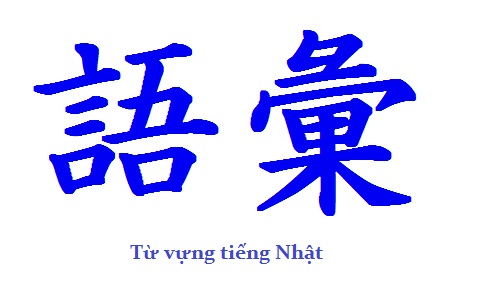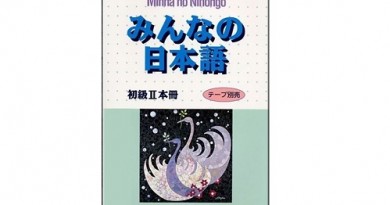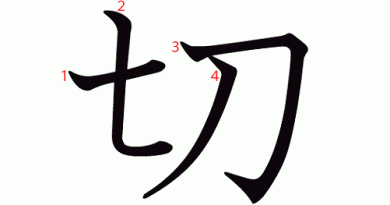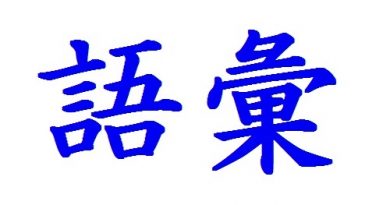1000 most common japanese words list
1000 most common japanese words list. Each language has about 3000 core words that are used in 70% of daily conversation. In this post, Learn Japanese daily would like to provide you 1000 most common japanese words. The list is divided in to each 10, so that you can learn it everyday with 10 word, and each page have 60 words for you to learn everyweek.
Contents
1000 most common japanese words – week 11
Day 61
601. なるほど (naruhodo) : I see, really
602. つまり (tsumari) : in short, that is to say
603. そのまま (sonomama) : as it is, just like that
604. はっきり (hakkiri) : clearly
605. 大変 (taihen) : awful, hard
606. 簡単 (kantan) : simple, easy
607. 似ている (niteiru) : look like, resemble
608. 驚く (odoroku) : be surprised, be startled
609. 嫌 (iya/ kira-i) : dislike (situational)
610. 喧嘩 (kenka) : fight, argument
Day 62
611. 遅れる (okureru) : be late
612. にんじん (ninjin) : carrot
613. ジャガイモ (jagaimo) : potato
614. ナス (nasu) : eggplant
615. やかん (yakan) : kettle
616. 話し合う (hanashiau) : discuss, talk over
617. 残す (nokosu) : leave, leave undone
618. ごちそうする (gochisousuru) : treat, host (a meal)
619. 合う (au) : fit, match
620. 当たる (ataru) : (go straight and) hit, strike
Day 63
621. 集まる (atsumaru) : gather, be collected
622. 場所 (basho) : place, space
623. 海 (umi) : sea, ocean
624. 少年 (shounen) : boy (between 7 and 18 years old)
625. 孫 (mago) : grandchild
626. 生徒 (seito) : pupil, student
627. 高校 (koukou) : high school (for short)
628. 年上 (toshiue) : older, senior
629. 卒業 (sotsugyou) : graduation
630. 運動 (undou) : movement, exercise
Day 64
631. 選手 (senshu) : athlete, (sports) player
632. 映画 (eiga) : movie
633. 英語 (eigo) : English
634. 手紙 (tegami) : letter
635. 動物 (doubutsu) : animal
636. 音 (oto) : sound, noise
637. 海外 (kaigai) : overseas, abroad
638. 外国人 (gaikokujin) : foreigner
639. 帰国 (kikoku) : return to one’s country
640. 彼ら (karera) : they
Day 65
641. 機械 (kikai) : machine
642. 基本 (kihon) : basics
643. 今度 (kondo) : this time, next time
644. 最後 (saigo) : last
645. 最初 (saisho) : first, outset
646. 準備 (junbi) : preparation, arrangement
647. 進む (susumu) : advance, move forward
648. 直接 (chokusetsu) : directly
649. 特に (tokuni) : specially, particularly
650. 届く (todoku) : reach, be received
Day 66
651. なぜ (naze) : why
652. 並ぶ (narabu) : line up, be parallel
653. 運ぶ (hakobu) : carry, transport
654. 直す (naosu) : repair, fix
655. 反対 (hantai) : oppose, object
656. 場合 (baai) : situation, case
657. 詳しい (kuwashii) : detailed
658. いたずら (itazura) : mischief, prank
659. お祝い (oiwai) : celebrate
660. くし (kushi) : comb
–> see more at next page



there’s no 801 word…
it is umai : sweet, delicious. Thanks for your comment, we will fix it.
Few typos: 緩い with meaning of loose meaning is read ゆるい, 明後日 is more commonly read あさって, 九つ has wrong romaji
thank yakisaba san ! i fixed them.
No. 147 . ishoni instead of issho
No. 177, which should be okuru.
Thank Anna ! i fixed them.
That’s really useful for me. How can i say the Congratulations with Japan friend. Is it true おめでとう
yes it is. you can say in more formal way : arigatou gozaimasu
No,224 should be te-buru
No.241 should be “magaru
Thank Anna, I fixed it !
No.292 should be ‘Kangaeru’
Thank Anna, I fixed it !
No. 373 should be yameru instead of tomeru
It can be tomeru sometimes, anyway i fixed it, Thanks Anna san !
No.170
Shouldn’t it be Watashitachi not Watachitachi?
Thank Riku san, i fixed it !
No.645 Everywhere I look is says it should be saisho, and that saikin means recently.
Thanks GoldFish-Boy, it is saisho. I fixed it.
No. 676 says that group is グループ but the romaji says guru-bu. I’m assuming it is guru-PU, with a P.
No. 744 shows that mondai is how you pronounce 宿題, but according to Jisho.com it’s しゅくだい (shukudai)
No. 788 has the same description as 785. But Jisho says that 788 means “reply; answer; response” not view, perspective.
I’m pretty sure that No. 819 should be kanarazu, not hanarazu.
Thank GoldFish-Boy san ! I checked and fixed words in your comments
Word 408 is sisutemu, shouldn’t it be shisutemu?
i fixed it, thanks Abdul
No. 422 is the same as No. 4…
It’s shisutemu not sisutemu
i fixed it, thanks Thorfinn
doesnt 218 okiru mean ‘wake up’? occur should be okoru instead
okiru means wake up, and also occur. okosu mean make some events occur
事故がおきた : accident happened (occured). 事故をおこした make an accident happened
278 こっち romaji is wrong. It should be kocchi?
249 is missing
i fixed them, thanks DekoMoon !
No.700 it should be ” seiki ” instead of “seki”
thanks Anna, i fixed it !
648 直接 romaji should be chokusetsu right?
thanks Chron, i fixed it !
218 should be to wake up, get up
okiru also have meaning : wake up, get up, i will add this meaning too, thanks Raiko
I imagine you put a lot of time into this free resource, thank you so much! for making this available and updated to the fixes people recommend.
Hello,
I would like to give your website content to my students learning Japanese. Can I have your permission to give your website name to students? Sincerely
Douglas
sure Douglas Lewis,
I am glad that this could help your students on learning
how do you say “I” when its obvious? Or is it just strictly “私”?
I heard something about “watashi” not being used if it was obvious, I may have to look that over again.
when its obvious, you can remove 私 when speaking
Hi, is there available any spreadsheet or document with these words? I would like to print them out.
sorry i don’t have them, you can print the web directly
136 should be jugyou not juugyo?
Thanks Simon Chevrier, I fixed it
hey, why cant i copy the word from the website?
sorry as other sites want to copy from my site to post on their own
I hope this is the right place to comment. 218 and 222 are repeated for some reason
okiru has two meaning (use different Kanji). chikaku is repeated as you comment 🙂
Ehm… Actually I see two okiru with the same Kanji, same for chikaku. 52 has the same Kanji as 218 and 171 has the same Kanji as 222.
they has the same kanji but different meaning 🙂
249 should be “kiiroi” instead of “kiiro”
i fixed it, thanks Rivus san !
Well ok thx 🙂
I’m pretty sure 506 is the same as a previous one
as you said, this must be nan not nani
I think 580 is wrong. It should be slimy if I’m not wrong
nurunuru is slimy not nurui
I think 566 should be to arrive, Shouldn’t it?
It also have “to arrive” meaning
583 should be in katakana I think
thank you, it should be in katakana
Hi, 263 should be konshuu.
Thanks for the list.
267 should be ni, nichi is a counter for days.
day 79 has 9 words instead of 10
263 the romaji should be “konshuu”, right? Awesome list though; thanks for making it!
301 should be “yasashii”, right? Thanks for taking your time to fix the typos!
Please check the romaji of 302, 303 , 304, 316, 318, 325, 331 and 332 too. It should be “oniisan”, “ookii”, “chiisai”, “mittsu”, “koukousei”, “yottsu”, “oishii” and “kinou”. Thanks for fixing!
Hello, I am building a website and was wondering if I can use some of these words to put in my site, would this be okay?
There is a lot of free ones out there but this is the first one I found.
Okay Douglas Thomas Lewis
967 should be chuushoku
Thank you guys, i apricate the time and effort you put to make this for us, im filled with joy that i found this website.
Yellow (762) is a repeat of 249.
i think 185 should be tsuzukeru,
Hi, I was wondering if these words are used during casual conversations, formal conversations, or a mix of both? Thank you.
I need the most useful phases daily conversation.japanese..
Wow! This is a wonderful resource. I’m so grateful not only to the creator, but for everyone who took the time to give the corrections I see above, and for the gracious way the creator accepted them and improved the product, or took the time to point out why and how the original was correct. You have all done a great thing together. Thank you.
Hello, I’d like to thank the person who made this site as it has proven to be invaluable for learning Japanese, thank you whoever you are from the bottom of my heart ありがとうございます‼